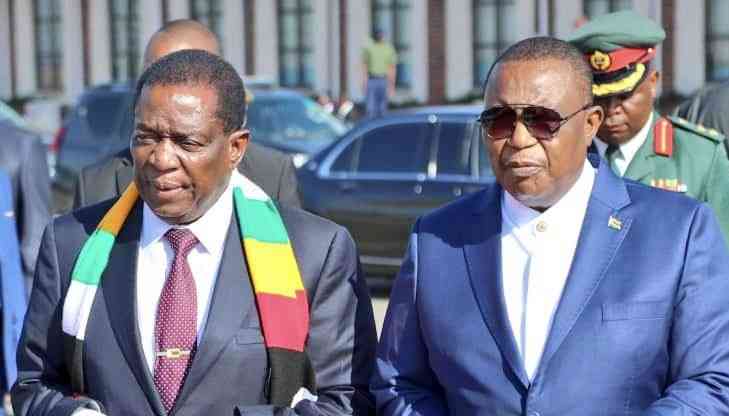
IN previous instalments of this column, I advocated for home-grown approaches towards economic growth for countries whose economies have failed to rise under the global trading system. I have also argued for parallel or alternative economies in countries such as South Africa where the economy is good, but still sidelines the formerly marginalised groups. I have also called for autonomous economies in countries that have been globally isolated for whatever reasons.
I have been advancing these ideas because the global economic system as we know it today was built and structured specifically to serve the interests of Western counties, mainly the United States (US) and former European colonial powers. These countries view the whole world as their source of cheap labour, raw materials and markets to sustain their economies. These manifested in various historical epochs as slavery for cheap labour, colonisation for raw materials and imperialism for easy access to markets.
The West has always been selfish in its approach, yet the world has continued to blindly count on it for help, advice and for inspiration. The West never had intentions to help other countries to grow their economies because doing so would be counterproductive to its economic hegemonic agenda. Perhaps we should not blame it because human beings are generally selfish by nature and are only generous if it helps to assert their power and control over others, the same way the West has been pumping aid to poor countries.
The three approaches mentioned earlier namely home-grown, parallel or alternative and autonomous have proven and will continue to prove to be the escape way from the oppressive global economic system that is controlled by the West and its institutions. Asian and Middle-Eastern countries pursued a hybrid of home-grown and autonomous approaches which led their economies to be where they are today. The resilience shown by the Russian economy under the increasingly devastating Western sanctions is simply because it was built to be autonomous and self-sustaining without which the country would have crumbled by now.
It is not only the selfishness, colonial and corrosiveness of the global economic system that has been of concern or rather perpetuated poverty and stunted the growth of other countries. The economic system, mainly the global trade and currency have been turned into political weapons launched to destroy or destabilise countries that do not politically agree with Western ideals. It has been used to challenge those that sought a different economic route. It has been used to reward those who shy away from challenging the repressiveness of the Western economic system by providing them with financial aid with favourable terms and conditions.
While the war in Ukraine has expedited the geopolitical fissures, the signs were always on the wall with the rise of China, Russia, Brazil and other countries that the world is getting frustrated by the behaviour of Western countries in their management of the global economic system. This frustration is forcing other large non-Western economies to seek alternative ways of facilitating global trade, a scenario which may see the influence of the United States dollar diminishing in the next decade.
Part of the US and European allies’ global power lies in the US dollar as a global trading currency. Up to 60% of global trade is conducted in US dollars and yet the US’s share in the global economy is just about 15% in terms of purchases. Thus, its currency has more political influence than its economy. The US and its allies have used this currency dominance as a political weapon to undermine other countries.
The growing frustrations with the weaponisation of the US dollar and the rise in prominence of BRICS countries (Brazil, Russia, India, China and South Africa) are giving more credence to the need for alternative currencies outside the US dollar system as it is now seen as an impediment to global trade. Other leading oil-producing countries such as Saudi Arabia have joined the discussions for an alternative global payment system because they no longer want to rely on the capricious US dollar system.
- Zim headed for a political dead heat in 2023
- Record breaker Mpofu revisits difficult upbringing
- Tendo Electronics eyes Africa after TelOne deal
- Record breaker Mpofu revisits difficult upbringing
Keep Reading
These developments may read like global political games, but there are real lessons that developing countries can draw from.
The first lesson is that it is not easy to develop under an oppressive global economic system that is not designed to favour you but to oppress you. The second lesson is to withdraw and work outside the oppressive global system and forge a home-growth approach to economic development.
The third lesson is that you cannot do it alone all the way, therefore join hands with those on the same path as you. It gives you the power to negotiate favourable trading terms and conditions. The fourth lesson is that once you join hands, it is easy to form a group and forge alternative trade systems outside the dominant and oppressive one. That is called freedom. Fifth and finally, once you have your own trading system with your peers where each member is equal, it is easy to challenge the oppressive global trading system.
Tapiwa Gomo is a development consultant based in Pretoria, South Africa. He writes here in his personal capacity.







